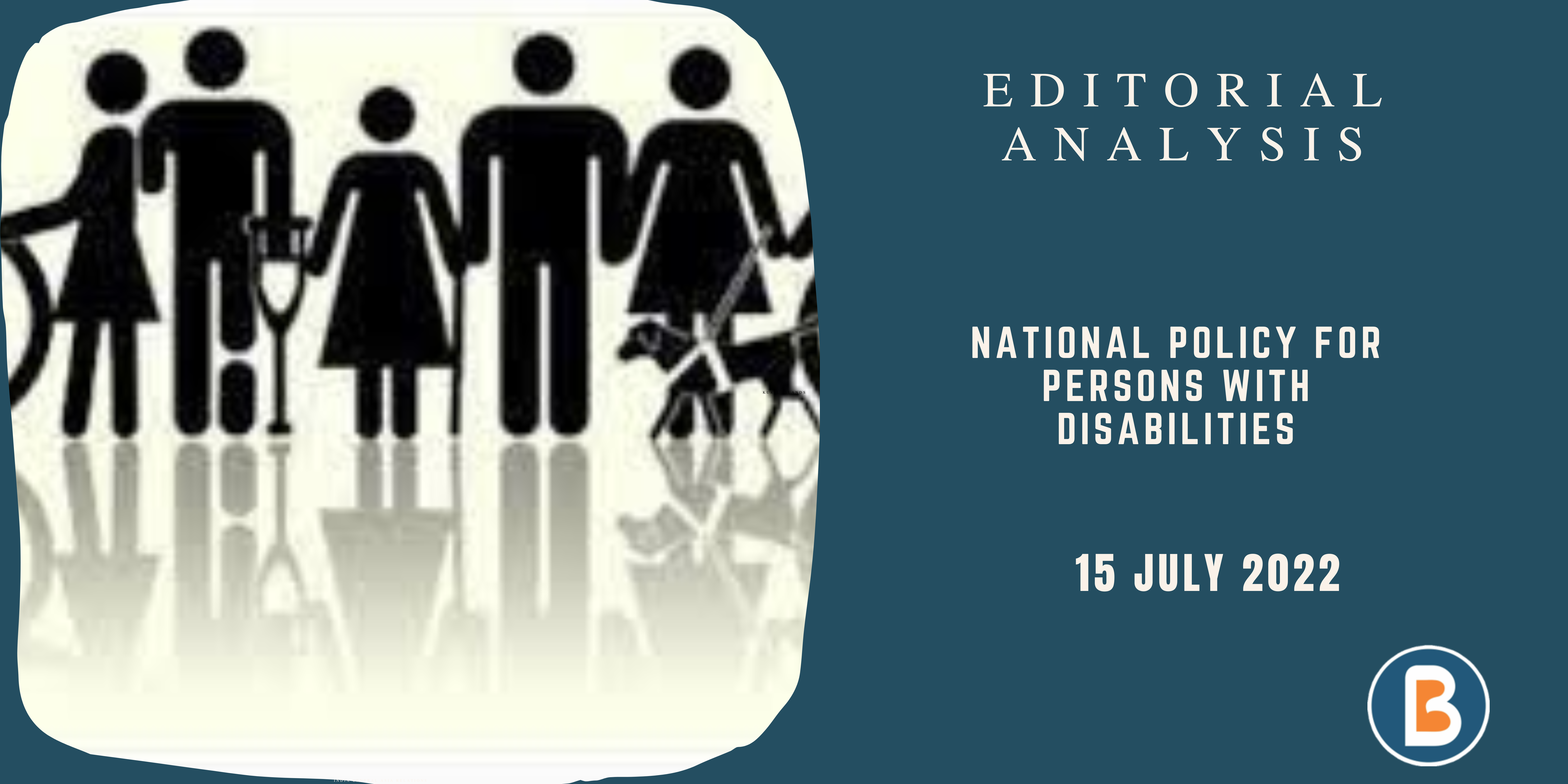National Policy For Persons With Disabilities
Context:
- The Department of Empowerment of Person with Disabilities (DoEPwD) recently released the draft of the national policy for persons with disabilities.
- The necessity for a new policy which replaces the 2006 policy was felt because of multiple factors such as India’s signing of the United Nations Convention on Rights of Persons with Disabilities; enactment of a new disability legislation, etc
Pros of the Bill:
- By shifting the emphasis from the person to society, or from a medical model of disability to a social or human rights model of disability, these commitments have altered the discourse surrounding disability.
- The draft policy’s fundamental goal is to demonstrate the government’s dedication to the empowerment and inclusion of people with disabilities by establishing a system that assures their full participation in society.
- The policy document emphasises a thorough commitment to social security, accessibility, sports and culture, education, health, skill development and employment, and other institutional mechanisms in order to further this commitment.
What are left out?
- The lack of any dedication to the political advancement of people with disabilities, however, is a glaring omission.
- State parties must “guarantee that persons with disabilities can effectively and fully engage in political and public life on an equal footing with others, directly or through freely chosen representatives,” according to Article 29 of the Convention on the Rights of Persons with Disabilities.
- The Incheon goals also encourage involvement in political and decision-making processes.
- These ideas are incorporated into The Rights of Persons with Disabilities Act 2016’s framework.
- The anti-discrimination commitment made under this Act acknowledges the political sphere in which individuals with disabilities should be able to exercise their fundamental rights and human rights.
- These mandates are not acknowledged in the texts.
- Political empowerment and the inclusion of the disabled are an issue that has not found traction in India’s democratic discussion.
- India does not have any policy commitment that is aimed at enhancing the political participation of disabled people.
Way Forward:
- The Election Commission of India and the State Election Commissions shall ensure that all polling stations are accessible to persons with disabilities and that all materials related to the electoral process are easily understandable by and accessible to them,” states Section 11 of the Rights of Persons with Disabilities Act.
- Even though this requirement has been in place for a while, disabled voters continue to report accessibility problems leading up to and on election day.
- Accessible voting places are frequently lacking in numerous places. Braille electronic voting devices and even wheelchair services are still not widely adapted at all polling places, this has to be resolved at the earliest.
Source The Hindu
For more updates, Click Here




